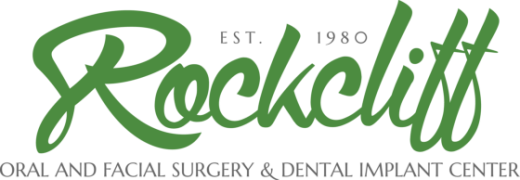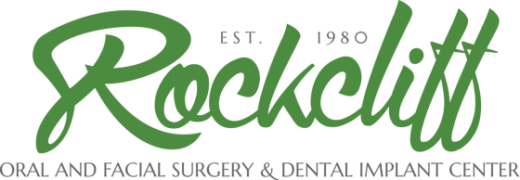May 19th, 2025

Wisdom teeth, or third molars, typically emerge during the late teens or early twenties. While some people have no trouble with them, many face issues due to limited space in the mouth and jaw to accommodate the additional teeth. An early consultation with an oral surgeon is key to determining if removal is necessary to minimize risks and avoid complications down the road.
“Many people are surprised to learn that not all wisdom teeth need to be removed, but waiting too long to assess them can cause unnecessary damage,” says Dr. Jenny Lane, oral surgeon at Rockcliff Oral and Facial Surgery. “The sooner we evaluate, the more options we have for treatment, which can make a huge difference in the outcome.”
What to Expect from the Wisdom Teeth Removal Process
When an oral surgeon recommends wisdom teeth extraction, they’ll guide you through a few pre-surgery steps. This includes avoiding food and drink before anesthesia and discussing any medications or allergies you may have.
After surgery, proper care is essential for a smooth recovery. Dr. Lane shares this advice:
- Follow post-op instructions: Take your medications as prescribed and avoid certain foods and activities for a few days.
- Reduce swelling with ice packs: Apply ice for 20 minutes on, 20 minutes off during the first 48 hours.
- Rest and stay hydrated: Skip the straws, which can increase the risk of dry socket, a painful complication.
- Watch for complications: If you experience severe pain, fever, or excessive swelling, contact your oral surgeon immediately.
“A lot of patients are surprised by how easy recovery can be when they stick to the basics,” Dr. Jenny Lane adds. “The few days of follow-up care are well worth it for a smooth healing process.”
Why an Oral Surgeon is the Best Choice for Wisdom Teeth Removal
Though general dentists can manage basic tooth extractions, oral and maxillofacial surgeons have specialized training for more complicated cases like impacted wisdom teeth removal. Here’s why oral surgeons are the best choice for wisdom teeth removal:
Comprehensive Evaluation
Oral surgeons take a detailed approach to evaluating your wisdom teeth, checking for potential issues like impaction or infection. They will determine if the position near nerves and sinuses present issues. If extraction is necessary, they’ll create a personalized treatment plan tailored to your specific needs.
Expert Surgical Techniques
Some extractions require more than a simple removal; they may involve cutting gum tissue or removing bone. Oral surgeons are trained to handle these complexities and manage complications like nerve damage or excessive bleeding.
Advanced Anesthesia Options
Unlike general dentists, oral surgeons can provide a variety of sedation and anesthesia options, such as IV sedation or general anesthesia, making the removal experience more comfortable.
Lower Risk of Complications
With advanced techniques and technology, oral surgeons reduce the risk of complications, helping ensure a smoother recovery.
Signs You Need Your Wisdom Teeth Removed and Why You Shouldn’t Wait
Not all wisdom teeth require extraction. If the teeth are coming in straight and causing no issues, they may not need removal. However, due to modern diet changes and the evolution of jaw sizes, many people face problems, including:
- Impacted Wisdom Teeth: These may not fully emerge, creating pressure on adjacent teeth or the development of periodontal disease and/or decay, which can lead to pain, headaches, and discomfort.
- Infection: Partially erupted teeth can trap bacteria, causing gum infections, cysts, or even gum disease.
- Crowding: Wisdom teeth can push against other teeth, causing misalignment, bite problems, nerve and bone damage. \
“We see patients who’ve had impacted teeth for years, and the longer you wait, the more difficult it is to correct, both in terms of surgery and recovery time.” says Dr. Jenny Lane.
How to Know if You Need Wisdom Teeth Removed
If you experience any of the following symptoms, it may be time to consult an oral surgeon:
- Persistent pain or discomfort at the back of your mouth
- Swelling, redness, or tenderness in the gums around your molars
- Difficulty opening your mouth or chewing food comfortably
- Frequent headaches or jaw pain
Why See an Oral Surgeon for Wisdom Teeth Removal?
With advanced training in complex extractions, sedation, and post-operative care, oral surgeons are the best option for minimizing discomfort and reducing the risk of complications with wisdom teeth. If you’re concerned about your wisdom teeth or experience discomfort, don’t wait. Contact Rockcliff Oral and Facial Surgery today for a consultation and expert care.
Back




